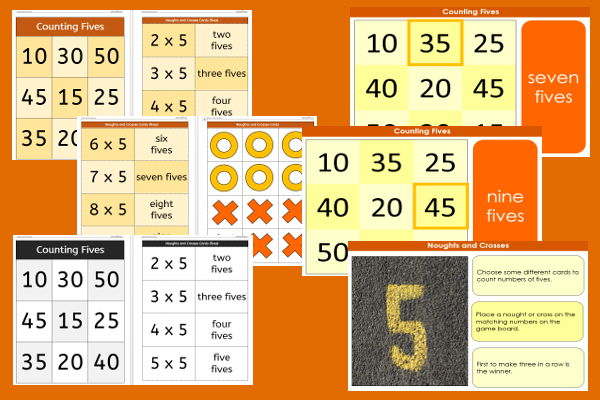Home > Key Stage One > Maths > Number > Patterns > Number Steps
Number Steps Fives

This maths teaching pack for Key Stage One gets the children to practise counting in steps of five from any number going forwards and backwards to complete different number sequences.
The class can identify and model how to use using addition and subtraction calculation skills to continue each of the number patterns when counting in steps of five.
Download this teaching pack including classroom activities and an interactive presentation to teach the children to practise counting in steps of five from any number going forwards and backwards to complete different number sequences
Activities in this teaching pack include a set of differentiated worksheets to practise counting in steps of five from different numbers going forwards and backwards including starting from either even or numbers to complete the missing steps in each number sequence.
The interactive presentation gets the children to identify and explain some of the techniques that they can use to complete different number sequences when counting in steps of five.
This lesson can support development in exploring how to complete sequences of numbers for counting steps. There are teaching activities for shared learning, differentiated worksheets to support independent learning and an interactive presentation to introduce concepts and key skills.
-

Money Coin Sums
Practise identifying, combining and recording sets of coins that can make matching sums that can be used when shopping for different products
-

Maths Number Assessment
Assess abilities in working with numbers to solve abstract and contextual problems when calculating sums, products and quotients using different techniques and methods
-

Animal Lists
Investigate how to compile lists using commas to present information about some of the special animals that live in habitats around the world
-

English Spelling Assessment
Assess abilities in spelling different vocabulary words based on the National Curriculum programmes of study for Key Stage One
